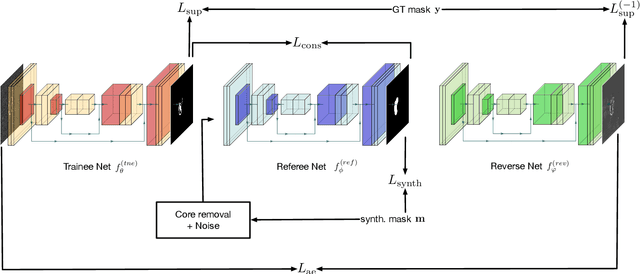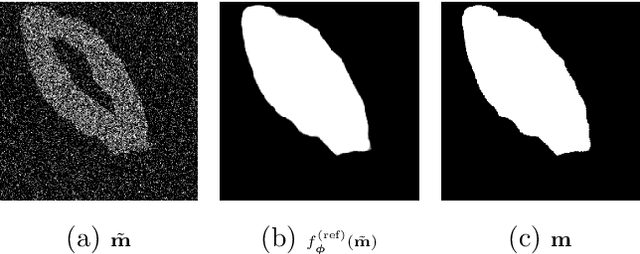Self-supervised U-net for few-shot learning of object segmentation in microscopy images
Paper and Code
May 22, 2022



State-of-the-art segmentation performances are achieved by deep neural networks. Training these networks from only a few training examples is challenging while producing annotated images that provide supervision is tedious. Recently, self-supervision, i.e. designing a neural pipeline providing synthetic or indirect supervision, has proved to significantly increase generalization performances of models trained on few shots. This paper introduces one such neural pipeline in the context of microscopic image segmentation. By leveraging the rather simple content of these images a trainee network can be mentored by a referee network which has been previously trained on synthetically generated pairs of corrupted/correct region masks.
 Add to Chrome
Add to Chrome Add to Firefox
Add to Firefox Add to Edge
Add to Edge